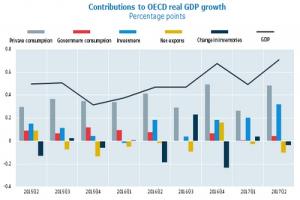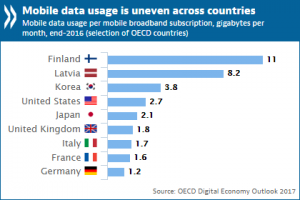Finance & Economics
IMF Executive Board Concludes 2017 Article IV Consultation with Spain
On September 20, 2017, the Executive Board of the International Monetary Fund (IMF) concluded the Article IV consultation with Spain. This also included a discussion of the Financial System Stability Assessment, based on the work of the Financial Sector Assessment Program (FSAP) missions.
- Read more
- 303 reads
IMF Statement on Tunisia
An International Monetary Fund (IMF) staff team, led by Bjoern Rother, visited Tunisia from October 4–6 to discuss the country’s recent economic developments and the authorities’ policy plans under Tunisia’s economic reform program supported by a four-year IMF Extended Fund Facility (EFF) arrangement.
- Read more
- 311 reads
Council conclusions on climate finance
REAFFIRMS the strong support of the EU and its Member States for the timely implementation of the Paris Agreement along with the 2030 Agenda for Sustainable Development. REITERATES the importance of making swift and ambitious progress on the Paris Agreement's transformational objective to make finance flows consistent with a pathway towards low greenhouse gas emissions and climate-resilient development and the importance of taking action, both individually and collectively, to fulfil this global response to the threat of climate change.
- Read more
- 370 reads
South Asia Loses Growth Lead, Can Regain through Action
After leading global growth for two years, South Asia has fallen to second place, after East Asia and the Pacific. The region’s slowdown is due to both temporary shocks and longer-term challenges. Regional economic growth is expected to slow to 6.9 percent in 2017 from 7.5 percent in 2016, but growth could rebound to 7.1 percent in 2018 with the right mix of policies and reforms.
- Read more
- 302 reads
Managing Migration Better Can Help Boost Welfare and Growth in ASEAN: World Bank
Easing restrictions on labor migration can boost workers’ welfare and deepen regional economic integration, says a new World Bank report.
- Read more
- 320 reads
Albania Puts Its Support Behind Sustainable Public Debt Management: Joins the World Bank Treasury Government Debt and Risk Management Program
The World Bank Treasury on October 5, announced that Albania has joined the Government Debt and Risk Management (GDRM) program, a World Bank Treasury initiative sponsored by the Swiss State Secretariat for Economic Affairs-SECO. The Program is providing assistance to middle-income countries (MICs) to improve macroeconomic and fiscal management by reducing vulnerability to financial and other shocks.
- Read more
- 335 reads
Commission reports on employment and social situation in the EU: record high employment rates and signs of improvement for the youth
Employment in the EU continues to grow at a consistent pace and in almost all Member States. Employment increased by 1.5 % in the EU and 1.6% in the euro area in the second quarter of 2017 compared tothe same period in 2016.There are 3.5 million and 2.4 million more people employed in the EU and euro area compared to last year. This means that 235.4 million people are now employed in the EU.
- Read more
- 342 reads
Pick-up in private consumption and investment drives higher OECD GDP growth in second quarter of 2017

- Read more
- 342 reads
World Bank Launched Somali Poverty Profile: First Comprehensive Snapshot of Welfare Conditions
On October 5, the World Bank launched a comprehensive analysis of the welfare conditions of the Somali population. The High Frequency Survey report says every second Somali is living in poverty, with poor households more likely to be deprived beyond monetary poverty as well, and less likely to participate in the labor market.
- Read more
- 305 reads
Human Rights
Fostering a More Humane World: The 28th Eurasian Economic Summi

Conscience, Hope, and Action: Keys to Global Peace and Sustainability

Ringing FOWPAL’s Peace Bell for the World:Nobel Peace Prize Laureates’ Visions and Actions

Protecting the World’s Cultural Diversity for a Sustainable Future

Puppet Show I International Friendship Day 2020


